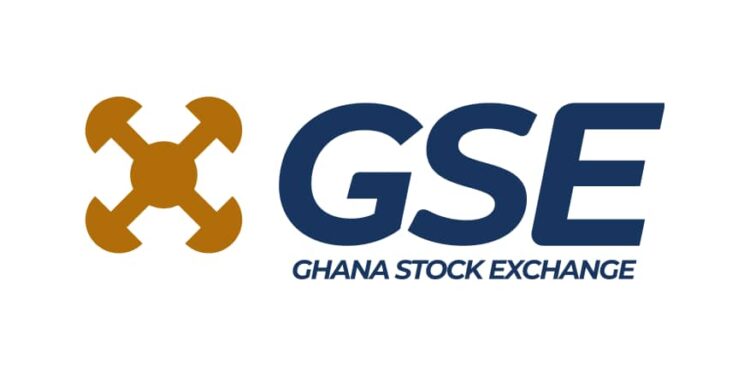Ghana Stock Exchange Surges in Q1 2025 Amid Market Optimism and Structural Reform
As global markets inch cautiously through a fragile post-crisis recovery, Ghana’s capital market is posting a distinctly optimistic narrative. At the close of March 2025, the Ghana Stock Exchange (GSE) recorded one of its strongest first-quarter performances in recent memory, with the GSE Composite Index (GSE-CI) rising 27.19% year-to-date and the Financial Stock Index climbing 28.50%.
The surge marks a pivotal moment for Ghana’s investment landscape, raising fresh questions about whether this rally is a signal of long-term confidence or a temporary correction driven by policy reprieve and profit-booking cycles. Still, the momentum suggests more than just speculative movement; it may be an early endorsement of Ghana’s post-restructuring macroeconomic reforms.
A Rally Anchored in Sector Strength
At the heart of the March rally was a resurgence in banking and energy stocks. Clydestone (Ghana) PLC emerged as the month’s top gainer with a dramatic 100% increase, followed closely by TotalEnergies Marketing Ghana PLC, which surged 60.75%. The latter’s recent disclosure at the “Fact Behind the Figures” forum revealed a remarkable rise in profits, from GHS 169 million in 2023 to GHS 277 million in 2024, offering investors a rare blend of dividend potential and an expansionary outlook.
Other notable gainers included Access Bank Ghana PLC (32.99%), SIC Insurance Company PLC (32.43%), CalBank (27.12%), and Enterprise Group PLC (24.39%), all reflecting renewed investor faith in the stability of Ghana’s financial sector post-debt restructuring.
The broader equity rally was further underlined by the absence of any price losers for the month — a market rarity that signals widespread upward revision of investor expectations.
Trade Volumes Rebound, But With Nuanced Undercurrents
While March saw a 572.87% year-on-year spike in the number of transactions, the trading data painted a more complex picture. Volume traded stood at 21.95 million shares, down 5.70% month-on-month, but value surged 24.15% to GHS 201.9 million, indicating a shift toward higher-value investments. Year-to-date volume was, however, significantly down by 75.87%, while value jumped 29.28%, reinforcing a trend where institutional and high-net-worth investors are returning more confidently than retail traders.
The total market capitalisation rose to GHS 136.99 billion, a 7.18% increase from February, suggesting that the rally is not merely cyclical but supported by fundamental revaluations.
Fixed Income Market: Government Paper Leads the Charge
The Ghana Fixed Income Market (GFIM) mirrored the equity market’s robust showing, trading GHS 20.23 billion in March. While this reflected a minor 8.50% decline from February’s record, it was still a 60.45% increase year-on-year.
Treasury Bills dominated the space, accounting for 65.99% of total trades, underscoring continued investor preference for short-term instruments amid macro uncertainty. Government Bonds followed at 28.76%, while Corporate Bonds and Bank of Ghana Bills accounted for marginal slices of the market (0.10% and 5.14%, respectively).
The year-to-date fixed income volume hit GHS 59.24 billion, a 45.57% rise over 2024, as government borrowing programs and renewed investor appetite drove momentum.
Beyond the Numbers: A Market Poised for Transition?
Behind the rally lies a deeper story, one of cautious optimism, structural adjustment, and regulatory activism. The GSE’s March activities were punctuated by meaningful events such as the “Ring the Bell for Gender Equality” initiative, marking International Women’s Day. Keynote speaker, emphasized the capital market’s role in promoting inclusion, gender parity, and empowering women-led enterprises.
The exchange also announced its forthcoming Commercial Paper Admission Ceremony for Federated Commodities PLC (FEDCO), scheduled for April 17, 2025. The move marks a strategic shift toward diversifying financial instruments, offering corporations a viable short-term funding alternative in a market long dominated by government paper.
Can the Bull Run Be Sustained?
Analysts remain divided. While Ghana’s macro fundamentals have improved post-IMF programme engagement, including relative currency stability and declining inflation, the true litmus test lies ahead. Investors will be watching for:
- Earnings consistency beyond the first quarter.
- Clear policy continuity ahead of the December 2025 general elections.
- A balanced fiscal strategy that supports private sector growth without crowding it out.
The GSE’s remarkable first quarter is, undoubtedly, a cause for celebration. But it is also a moment for introspection — to ensure that this resurgence is anchored in policy coherence, corporate accountability, and capital market depth.
Conclusion
As Ghana’s capital market reawakens, the question shifts from whether this rally is real to whether it is sustainable. The early signals are promising — from improved corporate earnings to rising investor participation. However, only through continued reform, political stability, and investor education can the GSE move from a seasonal bull run to sustained capital formation.
NorvanReports will continue to track these developments as Ghana inches closer to its goal of becoming West Africa’s premier investment destination.







